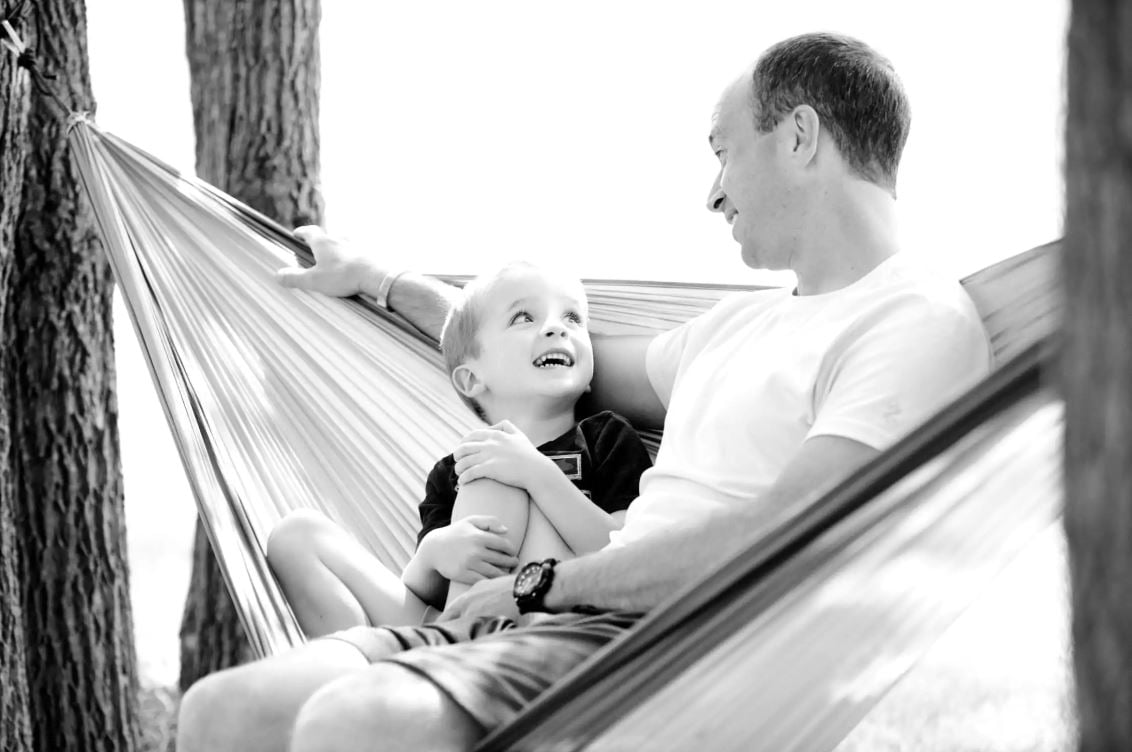Getting dads on board to keep kids healthy
July 19, 2019
A new study has found dads might need a confidence boost to persist with healthy food and drinks for their growing children

By the time their baby has turned three, fathers are less confident in their ability to provide a healthy diet for their child than they were at the baby’s birth, new research has found.
The study, conducted over three years by Dr Adam Walsh from Deakin University’s Institute for Physical Activity and Nutrition (IPAN), found that first-time fathers’ confidence in giving their child healthy food and drinks – such as fruits and vegetables and water for drinking – dips over time.
The decline was most dramatic among dads who were high-school educated, compared to those who were trade or university qualified.
While confidence declined overall in fathers, those who remained confident about providing healthy food for their kids when they were three years of age, displayed positive associations for their children’s water intake and negative associations with their child having sweetened drinks. When fathers were able to increase their confidence in providing healthy foods, there were positive associations for their children eating fruit and vegetables. When fathers’ confidence declined over time, there was a positive association with children’s sweetened drink consumption and negative associations for children’s fruit, vegetable and water intakes.
The new research raises questions about what can be done to support fathers to be more involved as positive nutrition role models for their kids as they grow, Dr Walsh said.
And this is particularly important in light of findings from Dr Walsh’s previous studies, which found that fathers do play an important role in obesity-protective behaviours in their children from as young as 18 months of age.
He said while there was some research about the influence of fathers on the health behaviours for primary and secondary school aged children, little was previously known about the influence dads can have on their kids in the early years.
“My research has shown fathers have an influence on their kids’ eating behaviours, even at a really early age,” he said. “I think it’s really important that dads consider that they are always a role model from the word go.
“Now the question is how can we maintain that level of confidence for dads as their children grow?”
He said influence of fathers on their children’s diets shouldn’t be underestimated, since they were increasingly taking on a more hands-on role with their kids.
“Up until recently, dads have been left out of the equation because of traditional parenting roles, but now with more mums returning to work after having children, we’re seeing a slow evolution where dads might not be considered the primary carer but they are starting to contribute more and more,” he said.
Growing up healthy: Dr Walsh’s tips for dads to help their young children eat right
- Consider yourself a role model from day one. “Even if you don’t like broccoli, have some on your plate. If you try it, your child is more likely to try it too.”
- Teach your child context around food. “Don’t assume you can outsmart your child, because you’re probably not. If you like a bit of chocolate, explain the context: ‘this food is what we have most of the time, this food is what we have some of the time, we’re having this because it’s a special occasion’.”
- Get involved in meal preparation and cooking. “If you don’t know how, or you’re not confident, use that as a learning and participatory experience with your child.”
- Make eating healthy foods fun. “Young children want to do what their parents are doing. Make up little games at the table and make eating nutritious foods an enjoyable experience, rather than a chore.”
- Make water your drink of choice. “Limit the availability of ‘non-core’ or sweetened drinks available in the house.”
Click here for more information about Deakin IPAN’s research into physical activity and nutrition or follow us on Twitter @DeakinIPAN